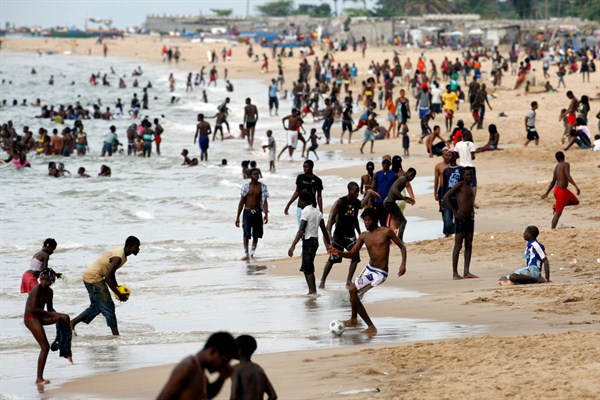After sending signals of his plans to retire from politics for nearly a year, Angola’s president, Jose Eduardo dos Santos—the second-longest-ruling leader in Africa—announced earlier this month that he will step down at the end of his current mandate and not run in August elections. That will bring an end to a presidency that began in 1979, when Jimmy Carter was in the White House. The transition from dos Santos’ rule is the most significant political event in Angola since its independence from Portugal in 1974, and comes at a time of deep economic and social crisis in the oil-rich country.
For months, it seemed like Angola’s governing party, the People’s Movement for the Liberation of Angola, better known as the MPLA, would drag its feet on making the decision official. In March 2016, dos Santos announced his intentions to leave active politics in 2018. Those plans seemed on track last August when he went through the routine of being elected as president of the MPLA at its party congress. The bigger news at the time was the selection of the minister of defense, Gen. Joao Lourenco, as vice president, which sent a strong signal of his rising profile within a party that dos Santos has controlled for decades.
Rumors spread on Angolan social media in December that dos Santos’ plans had changed and that rather than waiting until 2018, he would not run in August. A document leaked and circulated on Twitter suggested that the transition process was being sped up and that Lourenco would run in dos Santos’ place, with the minister for territorial administration, Bornito de Sousa, as his running mate. But still nothing was confirmed publicly.

